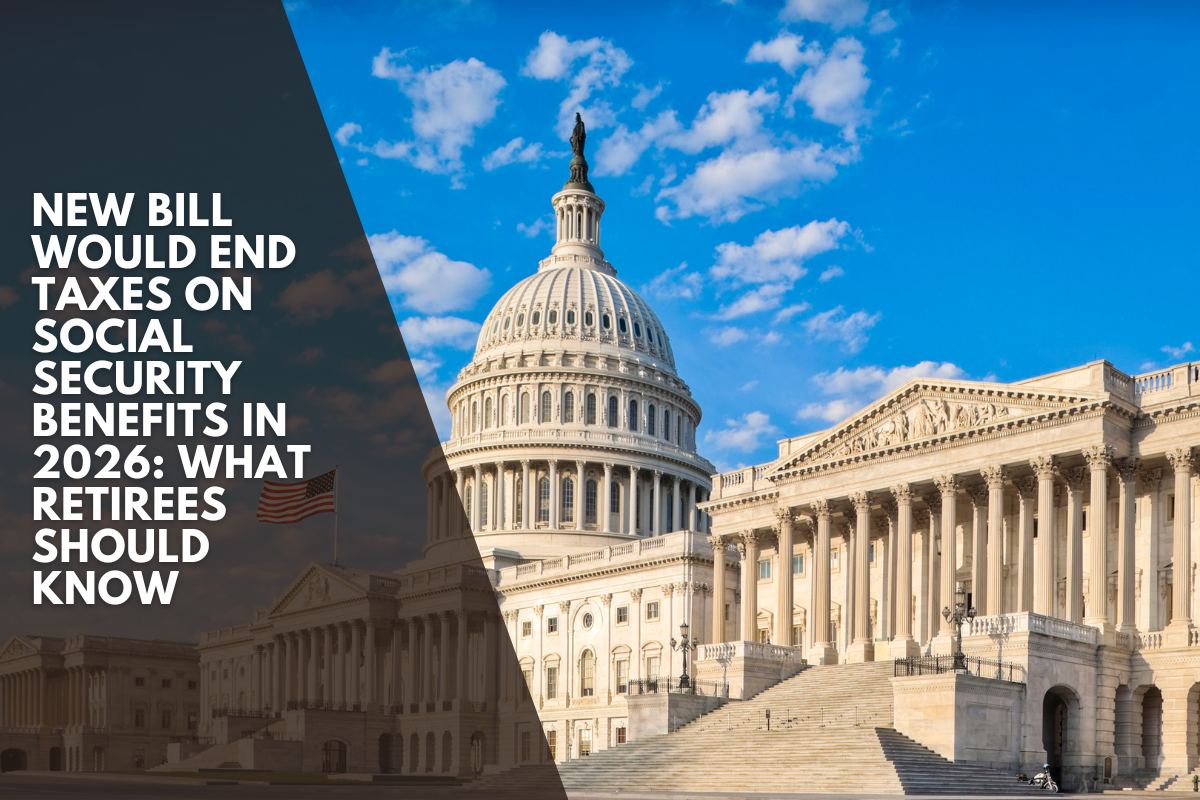For decades, American taxpayers have contributed to Social Security with each paycheck, only to learn later that up to 85% of those hard-earned benefits can be taxed again in retirement.
Many retirees wondered if 2025 would be the year Congress finally passed legislation to provide some relief. For some, President Donald Trump’s recent campaign promise to eliminate taxes on Social Security benefits during his second term heightened the question.
However, contrary to popular belief, the GOP mega-tax bill signed into law by Trump on July 4, 2025, does not affect Social Security taxes.
However, there is a renewed push to eliminate Social Security taxes by next year. It’s called the You Earned It, You Keep It Act, and here’s what it might mean for retirees.
What Is the ‘You Earned It, You Keep It’ Act?
On September 4, Sen. Ruben Gallego (D-Ariz.) and Rep. Angie Craig of Minnesota, who introduced a parallel bill in the U.S. House of Representatives in April, introduced the ‘You Earned It, You Keep It’ Act in the United States Senate.
The bill would permanently abolish federal taxes on Social Security benefits.
Unlike prior measures, which would chip away at taxes or raise income brackets, this bill calls for a full repeal.
If Congress passes the act this year, taxes on Social Security benefits would end starting in 2026 — impacting income tax returns filed in early 2027.
“Like many Americans, I’ve been contributing to Social Security since my first job at fourteen. But, despite decades of paying into the system, seniors are still forced to pay taxes on their hard-earned benefits, while the ultra-wealthy barely pay into the system at all,” Gallego said in a press release about the bill.
“Trump claimed to have ended Social Security taxes. My bill actually does it. “Permanently,” Gallego added.
To pay for this tax relief and ensure Social Security’s long-term viability, the bill proposes raising the Social Security payroll tax wage base (also known as the tax limit). If approved, beginning in 2026, all wages exceeding $250,000 would be subject to the 6.2% payroll tax, up from this year’s $176,100 cap.
This means that higher earners would continue to contribute, helping to offset the revenue loss from retiree tax cuts and extending the trust fund’s solvency for decades.
According to projections, this approach would allow the Social Security Administration to continue payments at least until 2058. That is far beyond the program’s current solvency forecast for 2034.
Why are Social Security Benefits taxed and why the push for change?
Right now, up to 85% of Social Security benefits can be taxable for retirees whose combined income (adjusted gross income plus tax-free interest and half of their Social Security benefits) exceeds $25,000 for singles or $32,000 for couples.
As Kiplinger has reported, these SS thresholds have remained unchanged since 1984, while the percentage of recipients paying some tax has increased from under 10% to nearly 56% today.
Some lawmakers from both parties argue the tax penalizes those who have worked for decades. With inflation biting into retirement budgets, a growing number of representatives cite fairness in calls for a tax repeal.
Because one of the sticking points with SS taxes is the loss of federal revenue, other proposals, such as the RETIREES FIRST Act, raise income thresholds rather than eliminating taxes.
Sens. Marsha Blackburn (R-Tennessee) and Roger Marshall (R-Kansas) introduced legislation to raise the provisional income thresholds that trigger taxes on Social Security benefits.
It would increase them to $34,000 for individuals and $68,000 for couples filing jointly. The current thresholds are $25,000 and $32,000, respectively.
“Retirees across the country depend on Social Security, especially after enduring the record-high inflation of the last four years,” Blackburn said in a press release. She continued: “This bill would cut taxes on seniors’ benefits, helping them keep more of their hard-earned money.”
Given the historical context, such a change could have a significant impact.
In 1984, less than 10% of Social Security beneficiaries paid taxes on their benefits.
Today, that figure has risen to nearly 56%.
So, supporters say incorporating an annual inflation adjustment to the thresholds could help prevent future “bracket creep.”
Social Security taxes: What should retirees expect next year?
If the ‘You Earned It, You Keep It’ Act passes this fall, older Americans may see an end to Social Security taxes on their 2026 tax returns, which are typically filed in early 2027. However, passage remains uncertain due to ongoing negotiations and highly partisan political bargaining on Capitol Hill.
Still, for millions of US taxpayers who see Social Security as a benefit earned through hard work, the tax debate is worth following.
Meanwhile, the new GOP tax bill includes a $6,000 temporary tax break for older adults. For more information, please see our report, How the New Senior Bonus Tax Deduction Works.












